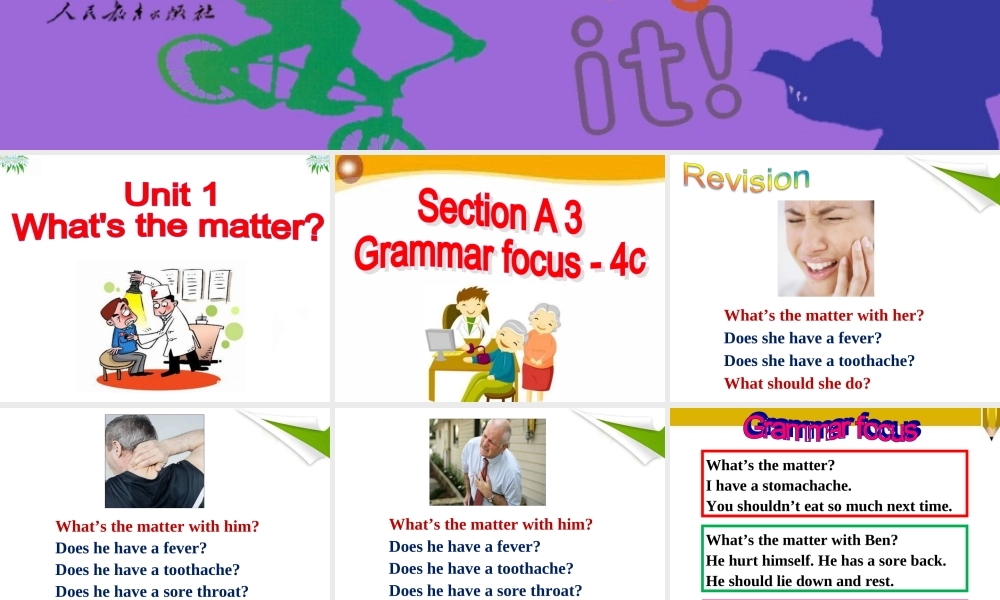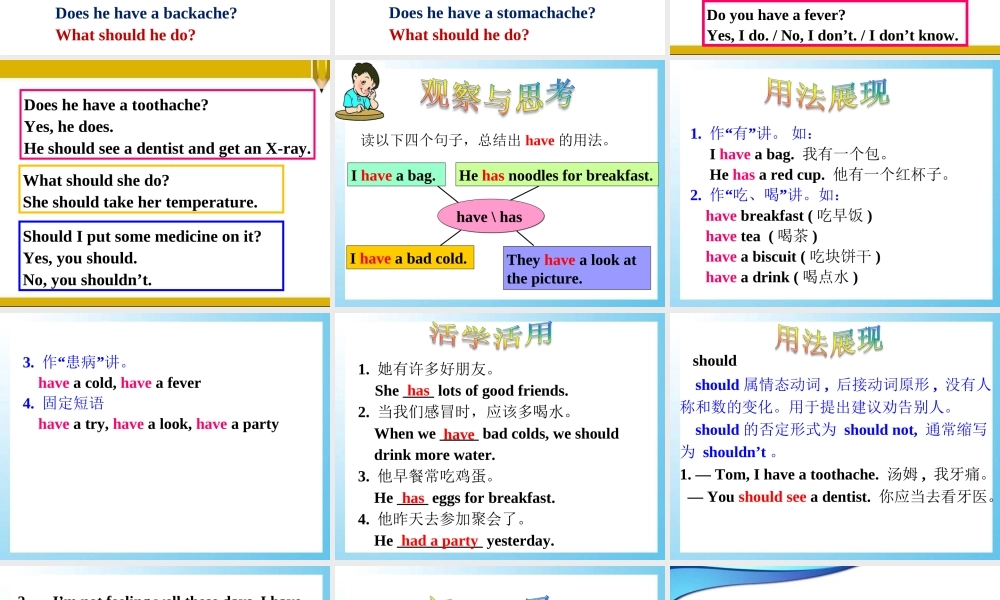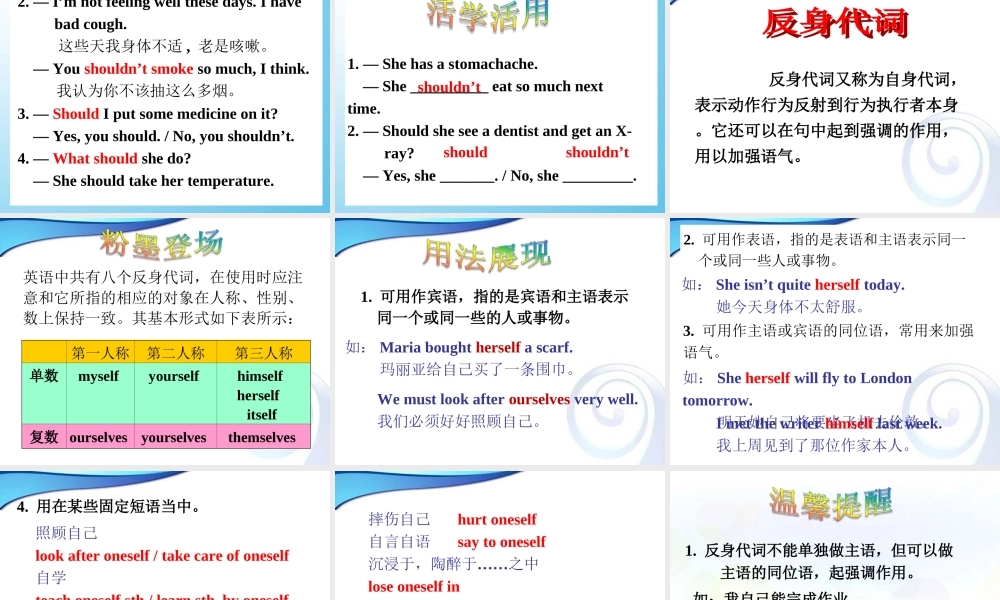What’s the matter with her?Does she have a fever?Does she have a toothache?What should she do?What’s the matter with him?Does he have a fever?Does he have a toothache?Does he have a sore throat?Does he have a backache?What should he do?What’s the matter with him?Does he have a fever?Does he have a toothache?Does he have a sore throat?Does he have a stomachache?What should he do?What’s the matter? I have a stomachache.You shouldn’t eat so much next time.What’s the matter with Ben?He hurt himself. He has a sore back.He should lie down and rest.Do you have a fever?Yes, I do. / No, I don’t. / I don’t know.Does he have a toothache? Yes, he does.He should see a dentist and get an X-ray.What should she do?She should take her temperature.Should I put some medicine on it?Yes, you should. No, you shouldn’t.读以下四个句子,总结出 have 的用法。have \ hashave \ hasI have a bag.He has noodles for breakfast.I have a bad cold.They have a look at the picture.1. “” 作 有 讲。 如: I have a bag. 我有一个包。 He has a red cup. 他有一个红杯子。2. “”作 吃、喝 讲。如: have breakfast ( 吃早饭 ) have tea ( 喝茶 ) have a biscuit ( 吃块饼干 ) have a drink ( 喝点水 ) 3. “”作 患病 讲。 have a cold, have a fever4. 固定短语 have a try, have a look, have a party1. 她有许多好朋友。 She ____ lots of good friends.2. 当我们感冒时,应该多喝水。 When we _____ bad colds, we should drink more water.3. 他早餐常吃鸡蛋。 He ____ eggs for breakfast.4. 他昨天去参加聚会了。 He ___________ yesterday.hashavehashad a party should 属情态动词 , 后接动词原形 , 没有人称和数的变化。用于提出建议劝告别人。 should 的否定形式为 should not, 通常缩写 为 shouldn’t 。1. — Tom, I have a toothache. 汤姆 , 我牙痛。 — You should see a...




